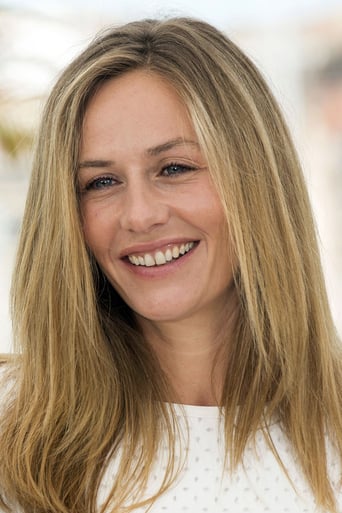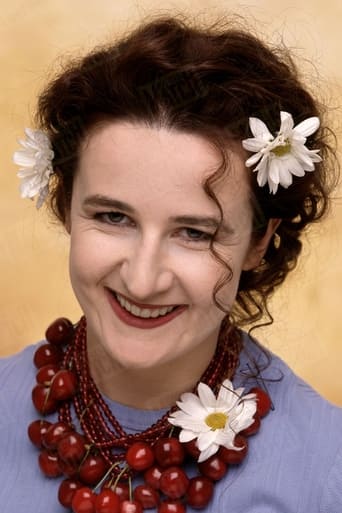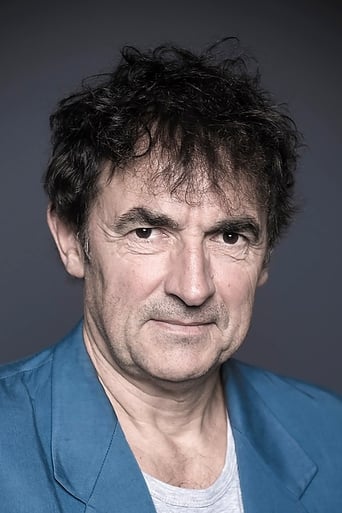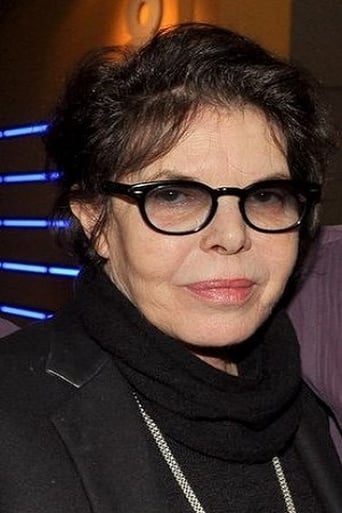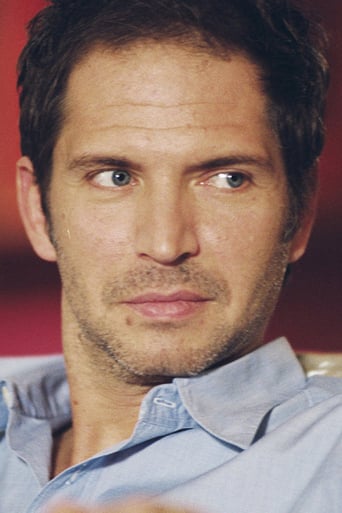Livestonth
I am only giving this movie a 1 for the great cast, though I can't imagine what any of them were thinking. This movie was horrible
Humbersi
The first must-see film of the year.
Teddie Blake
The movie turns out to be a little better than the average. Starting from a romantic formula often seen in the cinema, it ends in the most predictable (and somewhat bland) way.
Sameer Callahan
It really made me laugh, but for some moments I was tearing up because I could relate so much.
gelman@attglobal.net
This movie is advertised as a "comedy," and in classic drama definitions that's what it is. But there's little more to be had in Avenue Montaigne than mild amusement and genuine admiration for Cecile De France, a young woman from the provincial city of Macon who takes a job as a waitress in a small restaurant on the Avenue to experience the wonders of this fancy neighborhood. Cecile is an absolute delight, and the subplots -- a famous soap opera actress seeking a role in a serious play; a famous classical pianist who wants to give up performing on the global circuit, and an art collector who started with nothing amassed a fortune in artistic masterpieces and is now auctioning it all off -- are well-executed. It's a very pleasant film, worth an evening. And although her character is perhaps too good to be true, I'm grateful to discover Cecile De France.
kjewitt
As in most of the best French films, not a lot happens and people spend a lot of time talking about their problems but somehow it works. The central character played by Cecile de France is largely a ficelle designed to link together the subplots. Each of these involves an apparently enviable character - someone who's apparently got it made - who isn't as happy as he (or she) should be. The malaises of these rich and glitzy characters turn out to be universal human problems - ageing, family strife, boredom. One of the major themes of the film, beautifully woven through all the subplots, is that we should theorise about life (and art) less and respond to life (and art) in an emotionally direct way. Ergo I shall simply say I enjoyed it, I didn't get a numb behind and I was happier after I came out than when I went in. It's worth the price of admission for the Sidney Pollack restaurant scene alone.
Boyo-2
I was in Paris for a week in 1994. It was a golden opportunity to travel - only $300. round trip for air fare!! - and I loved every single second of it. There is something about that city that I find completely inviting. I would move there in a heartbeat if everyone there would learn English so I don't have to learn French - I am kidding of course..but not really.With that in mind, I went to see this movie, expecting it to be everything that made me love being there, and it does not disappoint.Plot mainly centers around Jessica, who is at a crossroads in her life. She has no place to live and no job. She quickly gets a job in a café that traditionally hires only men. Other characters are gradually introduced .. all of them are at a crossroads of one kind or another.. the concert pianist who is sick of it, the actress who is employed on a soap opera and hates it, the art collector who is selling it all off, and others as well. She finds her way into their lives, in either a large or a small way, and soon finds herself in love with the son of the former art collector.I enjoyed the actress the most. She's kind of funny looking and has the funniest dialogue. She's in a play that she doesn't really want to be in, in addition to the soap, and is just having a hard time of all of it. She meets a director (Sydney Pollack) who she wants to work with but does not think she has the reputation necessary to get hired by him. Eventually they meet and then he is desperate to hire her.There is something so easy, so anything-is-possible quality about this movie and its characters that I find impossible to resist. Its not a great movie by any stretch of the imagination but I just cry "UNCLE", give in to its charms, and enjoy the hell out of it.
Bram van der Hout
"The question is, what's this all about, and why must we concern ourselves with the 'predicaments' of people who from the looks of it are so singularly fortunate in life?" (Chris Knipp).Chris Knipp, no offence, hasn't understood the movie's main idea at all. This, in my experience, is what the movie is all about – the separation between "high class" classical music and life. Classical music, as all music, stems from life itself, is inspired and shaped by it. One can see how, exemplified by the pianist, this form of human expression is put in the strait-jacket of so-called "high culture". Said pianist is fortunate indeed to have his talent, but he's hardly able to breathe, to enjoy and live his talents because he's made to put up a show, to dance to the tune of what he himself calls "the system".

